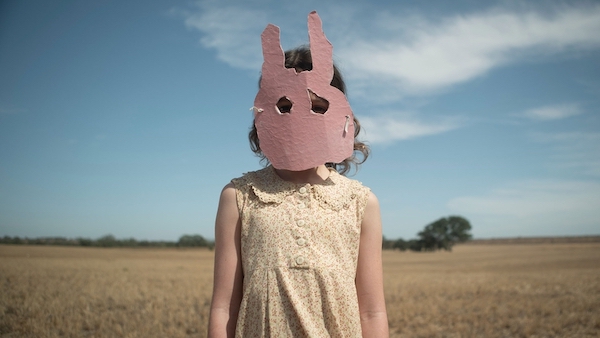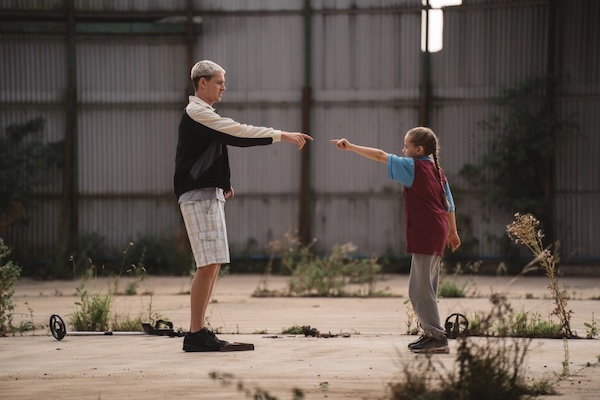Sundance Film Festival 2023 Dispatch #1 — Girls Just Wanna
By Peg Aloi
The three films I selected to start my 2023 Sundance journey were very different from one another, but they shared one common theme: girlhood.
For the last two years, the Sundance Film festival offered a really effective online event. But, although the pandemic is far from over, the organizers decided to go full-throttle in-person this year, which meant that online press access was far less generous. So my access to films at Sundance this year was limited. I was denied press accreditation this year, so this munificent magazine bought me a 10-film pass. But, even though I was able to buy some additional single tickets to augment my selection, the online offerings were slim compared to in-person access. Still, I’m happy to say I seem to have chosen a high-quality slate of films. I’ll be bringing you my reviews over the next few days.
The three films I selected to start my 2023 Sundance journey were very different from one another, but they shared one common theme: girlhood. Other than that they are scattered across genres: gothic/domestic horror, working class comedy, and coming-of-age drama. All three are directed by women (yay!) and are also first features.

A scene from Run Rabbit Run. Photo: Sundance website.
Run Rabbit Run (a directorial debut by Daina Reid with screenplay by Hannah Kent) is a disturbing Australian thriller. Sarah (Succession’s Sarah Snook), a fertility doctor, has to confront painful memories when her young daughter Mia, (the outstanding Lily La Torre), begins acting out in strange ways. Sarah grapples with plenty of domestic strife: she’s divorced, her father has just died, and her estranged mother has been in a care facility with dementia. During Mia’s birthday party a lost pet rabbit appears in the backyard, and Mia begs to keep it — this innocent act catalyzes a series of tense events. Mia misses her grandfather, but then she begins to complain about missing her grandmother Joan (the excellent Greta Scacchi, seen in last year’s folk horror film Shepherd), even though she’s never met her. Sarah is baffled; she has avoided contact with Joan for years. But she forces herself to visit and brings her daughter along. Mia and Joan form an immediate bond that triggers bizarre changes in Mia’s behavior. She wears a handmade rabbit mask and becomes angry and violent. She begins to refer to herself as Sarah’s sister Alice, who disappeared at age seven. Sarah is spooked by Mia’s increasingly creepy behavior and shares small bits of her troubled past with her daughter, which forces her to confront her own demons and the dysfunction in her upbringing. Snook is very effective in this complex characterization of repressed trauma and psychological breakdown. The difficult mother-daughter-grandmother dynamic recalls the excellent domestic horror film Relic. The gothic ghost story vibe of this film is nuanced and many-layered; chilling scenes of terror are created without resorting to jump scares or special effects.

Harris Dickinson and Lola Campbell in a scene from Scrapper. Photo: Sundance website.
Scrapper (made by filmmaker Charlotte Regan in her rookie debut) is a funny, edgy, naturalistic story of a pre-teen working class girl who lives on her own after her mother’s death. Made by music video artist Charlotte Regan, who also made a documentary about youth in the UK, this feature debut portrays the secret world of kids with humor and frankness. Georgie (the astonishingly confident newcomer Lola Campbell) keeps the East London flat tidy, even though she wears her favorite footballer shirt until it stinks. She fends off social workers by faking phone calls with her “uncle,” who supposedly lives with her. With her neighbor and best friend Ali (Alin Uzun), she scrapes together money for food and rent by stealing and selling bikes. She’s resourceful, content, and self-sufficient. But when a stranger appears claiming to be her father, her happy existence becomes complicated. At first, Jason (Harris Dickinson, seen recently in Triangle of Sadness) is rather short-tempered and bossy with Georgie, insisting he will stay and take care of her. But Georgie is doing just fine on her own; she also complains that Jason can barely take care of himself. Forced to alter her set routine, Georgie becomes reproachful with Jason, angry that he never had time for her before now. But, as the two make room for each other, it gradually becomes clear the pair have a lot in common: they just might be able to make a go of it as a family. Scrapper is a delight — clever, colorful, with touches of magic realism and an authentic, comfortable engagement with working class youth. This film has won Sundance’s Grand Jury Prize in the World Cinema Competition in the Dramatic category.

Eliza Scanlen in The Starling Girl. Photo: Sundance website.
Set in rural Kentucky, The Starling Girl follows a 17 year old girl living in a Christian fundamentalist community that represses her dreams and desires. Jem Starling (Eliza Scanlen) performs in a dance troupe overseen by her church. She struggles with objections to her artistic ideas, which are seen as too “sinful” by the church elders. She also worries about her lustful thoughts and prays for guidance and forgiveness. Her mother insists that Gem should start “courting” (a gateway to marriage in this traditional community), but the sexually curious girl is mildly repulsed by the boy who steps forward. Gem’s dad (an excellent Jimmi Simpson) struggles with demons from his past, even as he tries to embrace the religion that saved him. He encourages Gem to explore what she wants for herself.
Owen (Outer Range’s Lewis Pullman), the church’s youth pastor, returns from an extended trip to work on a farm in Puerto Rico and he invigorates the youth Bible study group with an unusual approach to prayer and atonement. Gem is drawn to Owen’s outsider status and the way he talks to her like an equal. But they’re not equals. After an inappropriate attraction blossoms between them, neither Gem’s lack of experience nor the married Owen’s position of authority stop them from succumbing to forbidden love. Their relationship progresses and they find it harder to keep their romance a secret and escape the inevitable dramatic repercussions. The film is sensitive to all of the moral and social complexities at stake here, wisely staying away from becoming preachy or exploitative. This is a powerful coming-of-age portrait that explores the pain of growing up with constraints and limits, and the dangers of being thrust into adult situations too quickly. Scanlen turns in a breathtakingly complex performance (as she did in Little Women and Babyteeth). Filmmaker Laurel Parmet’s beautifully rendered debut is artfully mature.
Peg Aloi is a former film critic for the Boston Phoenix and member of the Boston Society of Film Critics. She taught film studies in Boston for over a decade. She writes on film, TV, and culture for web publications like Time, Vice, Polygon, Bustle, Mic, Orlando Weekly, and Bloody Disgusting. Her blog “The Witching Hour” can be found on substack.
Tagged: Charlotte Regan, Daina Reid, Laurel Parmet, Peg Aloi, Run Rabbit Run, Scrapper, Sundance 2023
